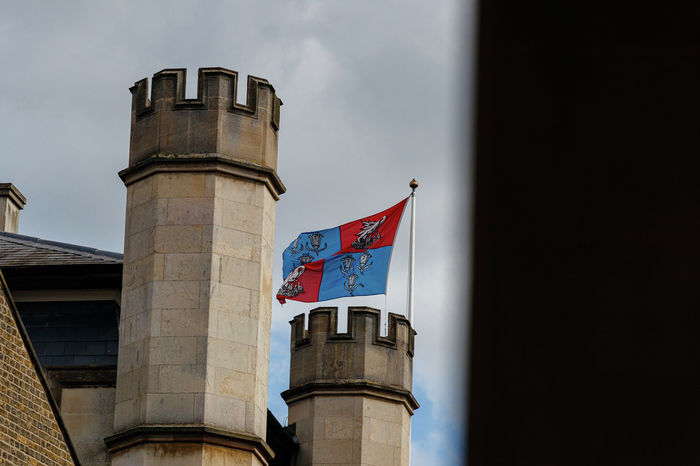It’s pay-to-win for health and life skills at Cambridge
Max La Bouchardiere argues that college accommodation disadvantages poorer students

As Jess Gotterson investigated last month, one’s experience in Cambridge’s accommodation can be subpar to put it lightly, depending on college and luck in a random ballot. Many student accommodations lack basic cooking facilities. If ovens and fridge-freezers are a fanciful pipe dream, hobs can feel like gold dust. Criticisms of Cambridge’s anachronistic housing arrangements are fairly ubiquitous: most of us are in some way short-changed by buildings so historic that the modernity of Eduroam can’t break through its walls.
However, what these criticisms typically focus on is luck. It is down to luck that some of us are “blessed” with the marvels of cooking innovation, while others hopelessly cook pasta with a standard-issue kettle. Luck is certainly a factor, but money predominates. Money determines whether we flourish into healthy, self-sufficient adults, or whether we remain frozen in limbo at the age of eighteen, with the same life skills and pre-packaged diet with which we might have entered the University.
"For those of us from less affluent backgrounds, the free choice and equality that presupposes a random ballot is illusory"
In my year and a term as an undergraduate at Cambridge, I’ve benefited from bursaries and my college’s hardship fund. These have helped alleviate my financial anxieties surrounding rent payments even on my lower band rooms, and for them I am grateful. Still, I’ve found myself living on the same staircase in King’s College both years around. This was not luck. I was fortunate to preside over my year’s accommodation ballot – and after the incoming third years, I had free rein to choose which accommodation I would live in. Yet, for those of us from less affluent backgrounds, the free choice and equality that presupposes a random ballot is illusory.
While your hand may unfortunately be forced into picking a less desirable room one year, if you can pay you can always escape the hovel when you are top of the ballot the year after. The inability to cook, to be healthy, and to develop vital life skills becomes a dreary blip on your journey as a young adult. For those like myself, it does not matter whether we are at the top or bottom of a random ballot: we live in the same incommodious places regardless. As a result, we make do for our whole time at Cambridge with under-equipped ‘gyp’ rooms, substandard health, a lack of communal spaces, and generally tiny living areas. These materialise the estrangement one might feel from a lower socio-economic background at Cambridge.
"Feeling sluggish and malnourished, on top of feeling isolated and individualised, working becomes harder"
The underbelly of the pay-to-win system is left alienated, facing disadvantages that encroach on academic life more broadly. Without basic, modern facilities, we are made disciples of our college’s butteries. When that proves an expensive option, it is easy to opt for inexpensive, processed microwave food. Feeling sluggish and malnourished, on top of feeling isolated and individualised, working becomes harder. As a result, it is unsurprising when academic grades suffer, which those from lower socio-economic backgrounds are more likely to face. Socio-economic disparities underscore all aspects of quotidian life, and the dissemination of them through the University’s accommodation system must not be ignored.
Certainly, this is no different from wider society. Our colleges systemically hindering life skills and good physical and mental health for those from less privileged classes is a microcosm of our economic system. Everything is, of course, pay-to-win. However, our affluent colleges masquerade behind notions of equality and enact half-measures to the point where we discuss accommodation disparities through luck and chance.
The random ballot is quickly replacing the ‘scholar’s ballot’ as a purportedly equal and fair solution. Demonstrably, if a college’s cheaper rooms are substantially ill-equipped and entrap those from lower socio-economic backgrounds for all their years of study, this is in no way a fair system either. King’s College goes further than most by trying to rectify this with a “Low Rent Band Guarantee”. This is typically for those on the bursary. It means that if you are placed randomly at the bottom of the accommodation ballot and only expensive accommodation is left available, King’s ensures you only have to pay the middle rent band. This is a positive first step, however it relies on you being near enough to the bottom of a random ballot and that all cheap accommodation gets selected first. In my experience, neither has happened – the cheap accommodation was left last.
So, what is to be done? It’s nearly impossible for historic colleges to modernise their infrastructure. Allowing personal cooking equipment might be one intermediary solution, yet my staircase was formally warned and asked to remove such. Private renting? Cambridge is reportedly the third-most expensive city in the UK for private renting outside of London. In my case, develop medical grounds exacerbated by poor accommodation and hope you can ‘special ballot’ into slightly more reasonable accommodation your final year. The pay-to-win system at Cambridge is present, and it’s a real tragedy indeed.
Want to share your thoughts on this article? Send us a letter to letters@varsity.co.uk or by using this form.
 Comment / Cambridge’s tourism risks commodifying students18 April 2025
Comment / Cambridge’s tourism risks commodifying students18 April 2025 News / Cambridge student numbers fall amid nationwide decline14 April 2025
News / Cambridge student numbers fall amid nationwide decline14 April 2025 News / Greenwich House occupiers miss deadline to respond to University legal action15 April 2025
News / Greenwich House occupiers miss deadline to respond to University legal action15 April 2025 Comment / The Cambridge workload prioritises quantity over quality 16 April 2025
Comment / The Cambridge workload prioritises quantity over quality 16 April 2025 Sport / Cambridge celebrate clean sweep at Boat Race 202514 April 2025
Sport / Cambridge celebrate clean sweep at Boat Race 202514 April 2025





